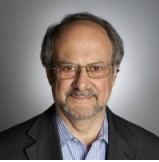Politics -- not technology -- caused the evisceration of these instruments. Politics could take back a fairer America.
Reason Five. Bewildering Changes in How Jobs Are Structured. In the past couple of decades, regular payroll jobs with career prospects have increasingly been displaced by an economy of short-term gigs, contract work, and crappy payroll jobs without decent pay and benefits, or even regular hours. This shift often gets blamed on technology or education, but that's malarkey.
With a different political balance of forces, regular employees could not be disguised as contract workers; corporate executives could face felony convictions for wage theft; the right to unionize would be enforced; the windfall profits of the "share economy" would actually be shared with workers; large corporations like McDonalds could not pretend that the wages and working conditions in its franchises were somebody else's problem -- and full employment would give workers more bargaining power generally.
Reason Six. The Internalization of a Generation's Plight. Compared to my age cohort, Millennials are the screwed generation. The dream of homeownership has been undercut; good jobs with career prospects are in short supply; young adults begin economic life saddled with student debt; the pension system has been blown up; and if you want to have kids, society doesn't do anything to help the work-family straddle.
You'd expect young adults to be in the streets, but here the cynicism about politics blends with a natural inclination to make a virtue of necessity. Maybe I'll never own a home but I have to move around a lot anyway. I have all I need on my iPad, which means I'm less materialistic than my parents. And hey, I don't get to be a millionaire like the people who created Uber, but maybe I'll be an Uber driver, which is cool. Not to mention airbnb.
On the other hand, the political leader who called for a one-time write off of all past student debt might still rally a lot of Millennials. In the distribution of income and opportunity, a lot of questions that are actually political have been personalized and internalized. The assumption that we are all on our own is deeply political. But that can be changed.
Reason Seven. The Absence of a Movement. In the face of all these assaults on the working and middle class, there are many movements but no Movement. The Occupy movement, which gave us the phrase, "The One Percent," was too hung up on its own procedural purity to create a broad movement for economic justice.
Looking out at the plethora of local and national groups pursuing greater economic equality, one sees mainly idealism and fragmentation.
Some of it is caused by that dread phrase, 501 c 3. Well-meaning foundations fall in love with the charismatic activist leader de jour, seem intent on creating yet another grass roots group or coalition, and then that group needs to differentiate itself from rivals and dance to the foundation's tune. (This is a column for another day.)
The remedies that would restore economic opportunity and security to ordinary Americans are far outside mainstream political conversation, and will not become mainstream until forced onto the agenda by a genuine mass movement. Sometimes that movement gets lucky and finds a rendezvous with a sympathetic national leader.
This has occurred before -- in the Roosevelt Revolution of the 1930s and the Civil Rights Revolution of the 1960s. But without a potent movement on the ground, mainstream electoral politics is likely to remain stuck with remedies too weak either to rouse public imagination and participation, or to provide more than token relief for today's extreme inequality.
This vicious circle -- really a downward spiral about depressed expectations and diminished participation -- can be reversed, as it has been reversed at moments in the American past. As that noted political consultant Joe Hill put it, as they were taking him to the gallows, "Don't mourn, organize."
(Note: You can view every article as one long page if you sign up as an Advocate Member, or higher).





